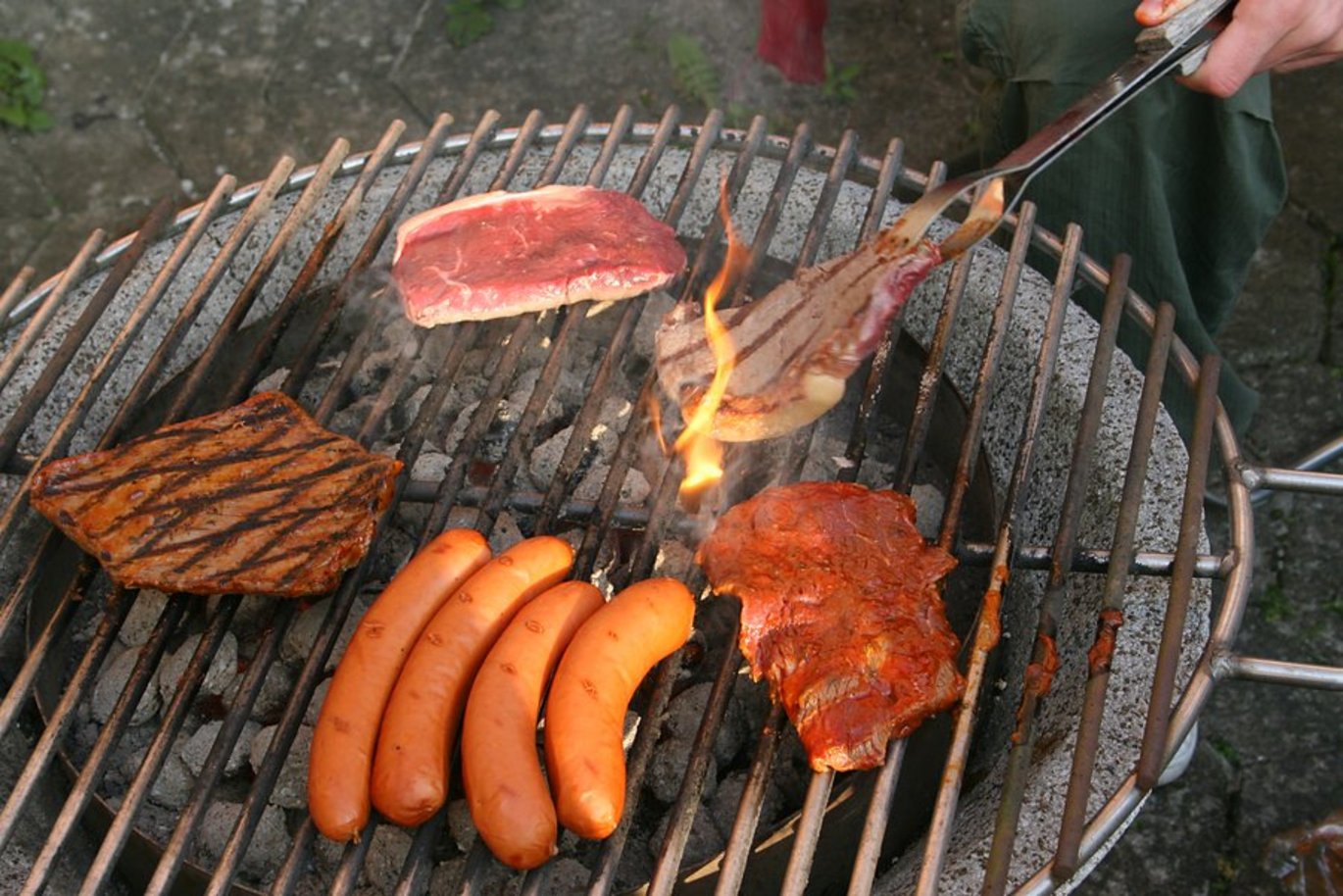Barbecue season: cut down on the red meat.
Summer means barbecues and plenty of meat. But take a minute to think about what - and how much of it - you are actually putting on the grill. Eating too much red meat increases the risk of developing cancer, warns a researcher from Aarhus University.

Denmark is a nation of meat-eaters. In fact, meat-consumption in Denmark is among the highest in the world. Pork and beef rank highest on the list of favourites among Danes, and summer in Denmark is almost synonymous with hot dogs and big burgers sizzling on the barbecue.
”We know that high consumption of red meat increases the risk of cancer. A report from the World Cancer Research Fund indicates that there is high likelihood of a link between meat from the four-legged animals and colorectal cancer,” says Kim Overvad from Aarhus University, who is researching the link between meat and cancer.
Cut meat consumption by half
According to Kim Overvad, the average weekly consumption of red meat should not exceed 500 g. At present, Danish women eat an average of 800 g a week, and Danish men around 900 g.
Kim Overvad therefore recommends barbecuing with care. Most people view meat in general - and large steaks and sausages in particular - as indispensable ingredients for a barbecue. But it is not a question of avoiding meat entirely. We simply need to make a habit of looking for white meat such as turkey and chicken - or even fish.
”Cut down on the red meat, swap the sausages for poultry and replace steaks and burgers with fish. Neither fish nor poultry is linked to an increased risk of cancer,” he says.
Additional information
Professor Kim Overvad
Aarhus University, Department of Public Health, Epidemiology
Direct tel.: + 45 8716 7971
Mobile: +45 4118 1287
ko@soci.au.dk
Did you know that…?
- Did you know that Danes love barbecues, and that Denmark actually has the highest number of grills per capita in the world?
- Did you know that experts recommend having at least one ‘meat-free’ day per week?